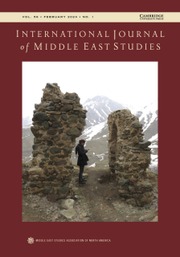The Far Enemy
Fawaz Gerges' book on al Qaeda and the jihadist movement has become a classic in the field since it was published in 2005. In the intervening years, with the advance of the 'War on Terror' and the invasion of Iraq, much has changed and, just as Gerges showed, al Qaeda's fortunes have taken a significant downturn. Revisiting The Far Enemy in this edition, Gerges demonstrates that not only have the jihadists split ranks, but that voices from within the ultra-religious right, those that previously supported al Qaeda, are condemning its tactics as violent, unethical, and out of accord with the true meaning of jihad. In fact, millions of Muslims worldwide have rejected al-Qaeda's ideology and strategies and blame Osama bin Laden and his cohorts for the havoc the organisation has wreaked on their communities. Al-Qaeda is now in the wilderness suffering massive erosion of authority and legitimacy in Muslim eyes and facing a fierce revolt from within. As Gerges warns, the next US administration would do well to use political and socio-economic strategies rather than military means to ensure that it stays there.
- Gerges, seasoned commentator and scholar of the Middle East, explains why al-Qaeda took its war to the West
- Through personal encounters and interviews with front-line operators, Gerges uncovers deep divides in the jihadist movement and challenges al-Qaeda's monopoly and durability
- Articulate, penetrating, informed, Gerges' book is the story from the inside, the jihadis account of 9/11
Reviews & endorsements
Praise for the First Edition
"...a few brave academics have stepped with books that evince a clearsighted vision and solid expertise. Among the best of these is Fawaz A. Gerges's The Far Enemy: Why Jihad Went Global." - Chronicle of Higher Education
"The title of Fawaz A. Gerges's incisive The Far Enemy refers to the al Qaeda term for the United States and its Western allies, but the book's focus is squarely on the internal divisions and ideological disputes that rent the jihadis during the mid-1990s." - Washington Post Book World
"The author uses primary Arabic sources and interviews with militants to give a fascinating account of one of the most complex phenomena in the contemporary Middle East. Highly recommended." - Choice
Suggested reading about Islam and its history, New York Times "Week in Review" section
"The book provides a remarkable picture of the complexity of the jihad movement in recent decades." - The International History Review
"The Far Enemy is a significant work and is essential reading for anyone who wishes to understand the trajectory of jihad movements over the past three decades." - International Journal of Middle East Studies
Product details
May 2009Adobe eBook Reader
9780511512889
0 pages
0kg
This ISBN is for an eBook version which is distributed on our behalf by a third party.
Table of Contents
- Introduction: the road to September 11 and after
- 1. Religious nationalists and the near enemy
- 2. The Afghan war: sowing the seeds of transnational Jihad
- 3. The rise of transnationalist Jihadis and the far enemy
- 4. Splitting up of Jihadis
- 5. The aftermath: the war within
- 6. The Iraq war: planting the seeds of Al Qaeda's second generation?







